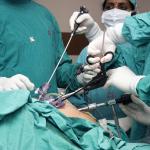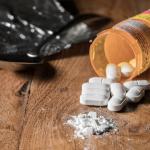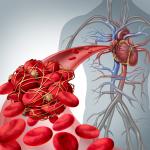Two decades after new antibiotic research came to a screeching halt, we find ourselves in a gigantic mess. Hardly a day goes by without a news story about "superbugs"—multi-drug resistant bacteria, and how difficult it is to kill them.
Drugs & Pharmaceuticals
A new article in JAMA isn't going to make either knee specialists or their patients very happy. And that "cortisone shot" you're scheduled to get?
The decision to undergo gastric band surgery is a difficult one in itself to make. But findings from a new study have now made that decision even tougher, because an additional surgery – or two, or three, or more – may also be necessary.
Without fail, when the topic of water birth resurfaces in the media it is often done so irresponsibly. The latest recurrence doesn’t fail to disappoint.
There is nothing more effective for treating acute pain than opioids, said University of Washington pharmacology professor Charles Chavkin at a recent discussion on the "next generation" of pain therapeutics hosted by Life Science Washington in Se
Last month there was talk of a 20 percent cut in funding for the National Institutes of Health, which is the primary source of academic life sciences grants.
While the price of EpiPens have increased dramatically to unaffordable levels for many, at least someone is working on behalf of aggrieved consumers to make the purchase of the potential life-saving drug more worthwhile.
Antibiotic resistance is an ongoing problem. Strike that - an ongoing crisis. Although the reasons are varied and many, we know that more usage results in more resistance.
When it comes to finding new antibiotics, no place is too weird to look.
To be able to clot our blood is an extraordinary capability. However, too much of a good thing poses its own risks. Reducing your chances of developing pathologic clots will be addressed here.












